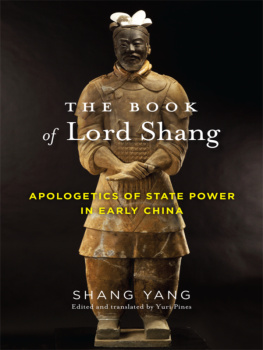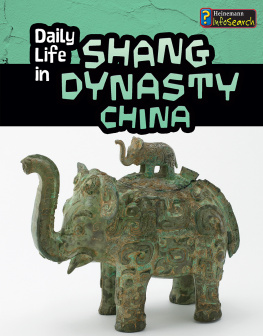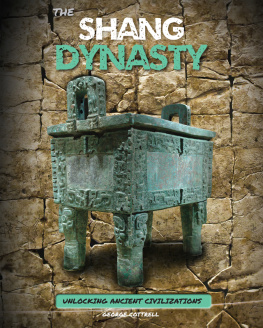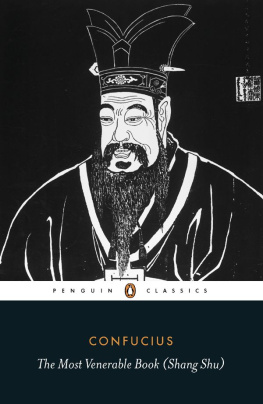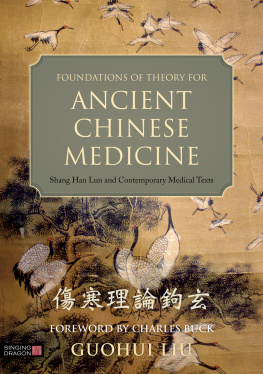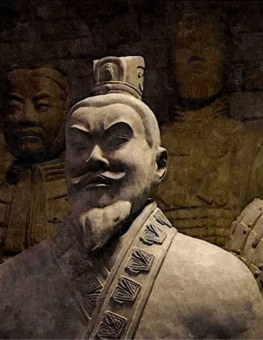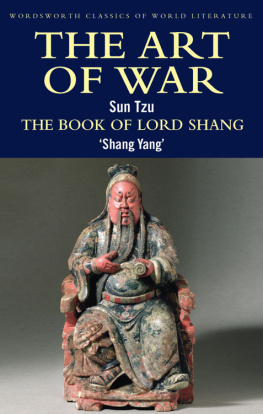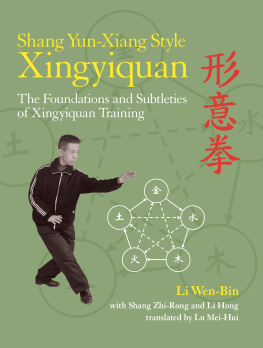Table of Contents
THE BOOK OF LORD SHANG
TRANSLATIONS FROM THE ASIAN CLASSICS
TRANSLATIONS FROM THE ASIAN CLASSICS
Editorial Board
Wm. Theodore de Bary, Chair
Paul Anderer
Donald Keene
George A. Saliba
Haruo Shirane
Burton Watson
Wei Shang
THE BOOK OF LORD SHANG
Apologetics of State Power in Early China
SHANG YANG
EDITED AND TRANSLATED BY
YURI PINES
COLUMBIA UNIVERSITY PRESS
New York
Columbia University Press wishes to express its appreciation for assistance given by the Chiang Ching-kuo Foundation for International Scholarly Exchange and Council for Cultural Affairs in the publication of this book.
Columbia University Press
Publishers Since 1893
New York Chichester, West Sussex
cup.columbia.edu
Copyright 2017 Columbia University Press
All rights reserved
E-ISBN 978-0-231-54233-3
Library of Congress Cataloging-in-Publication Data
Names: Shang, Yang, -338 B.C. | Pines, Yuri, translator, editor.
Title: The book of Lord Shang : apologetics of state power in early China / Shang Yang ; translated and edited by Yuri Pines.
Other titles: Shang jun shu. English
Description: New York : Columbia University Press, 2017. | Series: Translations from the Asian classics | Includes bibliographical references and index.
Identifiers: LCCN 2016015101 (print) | LCCN 2016028594 (ebook) | ISBN 9780231179881 (cloth : alk. paper) | ISBN 9780231542333 (electronic)
Subjects: LCSH: Philosophy, ChineseEarly works to 1800. | Political scienceChinaEarly works to 1800. | ChinaPolitics and governmentTo 221 B.C.Early works to 1800.
Classification: LCC B128.S472 E6 2017 (print) | LCC B128.S472 (ebook) | DDC 181/.115dc23
LC record available at https://lccn.loc.gov/2016015101
A Columbia University Press E-book.
CUP would be pleased to hear about your reading experience with this e-book at .
Cover design: Rebecca Lown
CONTENTS
I was attracted to the Book of Lord Shang right away when I encountered it (still in Russian translation) as an undergraduate student. I was fascinated back then by the books forceful language, its originality, and its authors blatant and provocative style, which makes reading it, in the words of A. C. Graham, a refreshing experience (1989, 292). Later, as a graduate student, I re-read the text (this time in Chinese) and was much impressed by the depth of some of its chapters, most notably , Opening the Blocked, which I consider one of the finest philosophical essays in early China. It was then that I noticed a surprising lack of interest in Shang Yang and his legacy among Western scholars and decided that sooner or later I would do my best to reintroduce this thinker to colleagues in Chinese studies and to those interested in comparative political thought. These aspirations are realized in the present book.
During the years in which I prepared this manuscript, I was given an opportunity to present my findings at a few scholarly conferences and publish them in journals and in collected volumes. I am indebted to all those colleagues, editors, and reviewers who contributed enormously to the maturation of the current manuscript. I am grateful to the journal Early China, which allowed incorporation in of the present book significant parts of my article on the dating of the Book of Lord Shang: Dating a Pre-imperial Text: The Case Study of the Book of Lord Shang, Early China 39 (2016).
I am particularly indebted to colleagues and friends who read parts of the manuscript and made very useful comments, especially Paul R. Goldin, Martin Kern, Andrew Plaks, and Kai Vogelsang. Billy French painstakingly edited the penultimate version of my translation, greatly improving my English and pointing out some embarrassing inaccuracies, to which am deeply grateful. Special thanks to Ms. Amit Niv, who prepared the map on page x. Needless to say, any remaining mistakes and questionable interpretations in the final version are my sole responsibility.
In preparing this work, I was supported by the Israel Science Foundation (Grant 511/11) and by the Michael William Lipson Chair in Chinese Studies at the Hebrew University of Jerusalem.
Last but not least: my deep thanks go to Wang Yu , who tolerated my years-long engagement with the Book of Lord Shang!
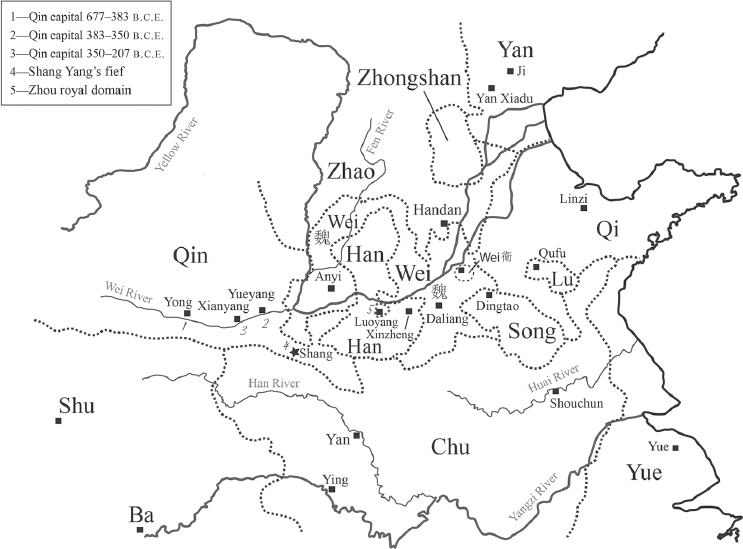

the singularly successful political practitioner whose reforms propelled the state of Qin to supremacy in the world of the Warring States (Zhanguo , 453221 B.C.E.). Even though this attribution is not entirely correct because portions of the book were composed long after Shang Yangs death, the Book of Lord Shang remains a major testament to the ideas of Qin reformers, the architects of the future Qin Empire (221207 B.C.E.). Third, the books vision of empowering the state by establishing total control over its material and human resources had a lasting impact on Chinese statesmen. As the earliest work to advocate the policy of enriching the state and strengthening the army (fuguo qiangbing ), the Book of Lord Shang becamedespite its notoriety in the eyes of the majority of imperial literatian important text for supporters of the states socioeconomic and military activism throughout Chinas long imperial history and well into the twentieth century.
Its importance notwithstanding, the Book of Lord Shang remains largely outside the focus of Western Sinology. Although Shang Yangs ideas are duly discussed in most introductory-level studies, As a result, recent advances in studies of the text in China and to a lesser extent in Japan have passed largely unnoticed in the West.
may reflect the attitudes of not just many traditional but also many modern scholars.
Yet now technical problems can no longer justify the neglect of the Book of Lord Shang. In recent decades, scholarly understanding of the text in China and to a lesser extent in Japan has advanced tremendously. Textual studies have culminated with a new critical edition by Zhang Jue (2012), which greatly facilitates scholarly engagement with the Book of Lord Shang; other major studies (most notably by Zheng Liangshu [1989] and Yoshinami Takashi [1992]) have brought about a much more sophisticated understanding of the texts dating and composition. In addition, a series of recent remarkable paleographic discoveries allow us to contextualize the Book of Lord Shang in the actual socioeconomic policies of the state of Qin, bringing about a qualitative leap in our understanding of the texts ideas (see, e.g., Tong Weimin 2013). Facing fewer technical obstacles than our predecessors, we can also liberate ourselves from the shackles of political expediency, which dominated studies of this text in the twentieth century. It is time to engage the Book of Lord Shang not as a foil in ideological debates pro or contra modern totalitarian or statist ideologies, but as an important monument of political thought of the Warring States period, a text that contributed considerably toward the formation of the Chinese Empire, a precious repository of insightful and innovativeeven if highly controversial and at times fairly alienatingideas. Only having understood the text on its own terms and within contemporaneous political and ideological contexts can we ask whichif anyof its ideas are relevant to our times.

